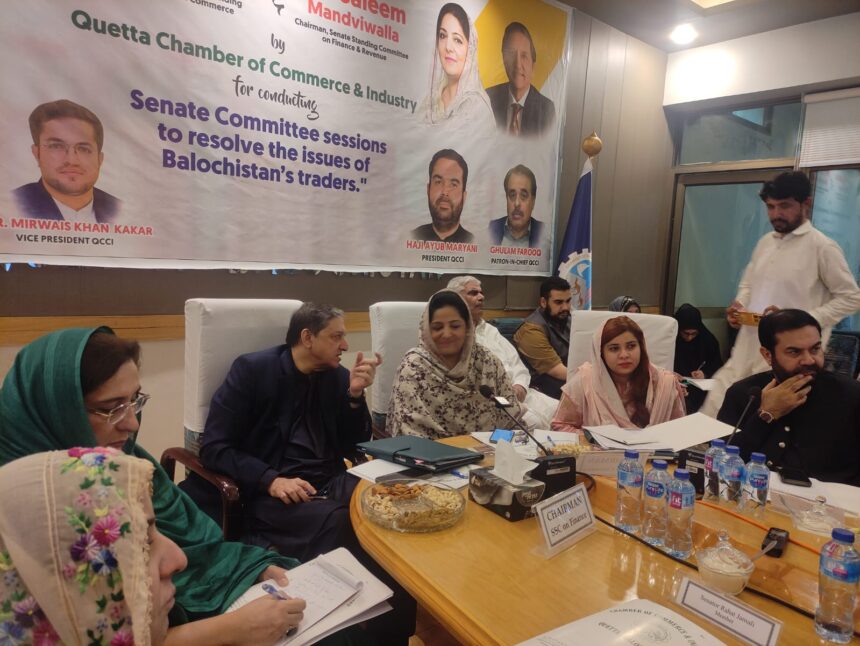**Senate Committees Hear Alarming Trade Challenges from Chaman Chamber at Quetta Meeting**
A joint session of the Senate Standing Committees on Commerce and Finance & Revenue convened at the Quetta Chamber of Commerce and Industry (QCCI), where members of the Chaman Chamber of Commerce and Industry (CCCI) presented urgent concerns over severe disruptions to cross-border trade. Local business leaders and government officials participated in the meeting, chaired by Senator Anusha Rahman and Senator Saleem Mandviwala, to address the region’s mounting economic challenges.
The Chaman Chamber outlined a series of critical obstacles undermining trade operations along the Pakistan-Afghanistan border. Foremost among the issues is the ineffective rollout of the Barter Trade Mechanism under SRO 2023. Instead of fostering smoother trade, the regulation has reportedly increased operational hardships due to poor coordination between agencies.
Members also highlighted the lack of essential infrastructure at the Chaman border, including non-functional scanners and limited customs clearance facilities. This has resulted in significant delays, with only a restricted number of trucks allowed entry each day. The resulting congestion has led to demurrage losses, with hundreds of vehicles forced to queue for extended periods.
Capacity constraints at the National Logistics Cell (NLC) Terminal are exacerbating the problem. The terminal’s limited space leaves many drivers and clearing agents stranded outside the premises for days, incurring high costs and facing inadequate amenities such as shelter, drinking water, and toilet facilities.
The absence of electronic documentation systems and a lack of coordination between Customs and NLC personnel are further impeding transparency and efficiency. The Chamber also criticized the accessibility of the NLC booking counter, describing its location as difficult to reach for many traders.
In addition to these immediate concerns, the CCCI noted that the recently built Chaman Dry Port remains non-operational, despite significant time and investment. They raised frustrations over the lack of support and constantly changing procedures, which are being implemented without meaningful consultation with stakeholders, thereby disrupting trade continuity.
Responding to these grievances, Senators Anusha Rahman and Saleem Mandviwala expressed serious concern and assured business representatives of the government’s commitment to resolving the problems. The committee chairs pledged to recommend swift action by relevant government departments, including on-the-ground visits to better understand the challenges firsthand.
The meeting concluded with agreement among all participants on the urgent need for a coordinated roadmap to support cross-border commerce. Enhanced cooperation between departments and tangible improvements in infrastructure and facilitation were deemed essential to restoring the confidence of local traders and investors.











